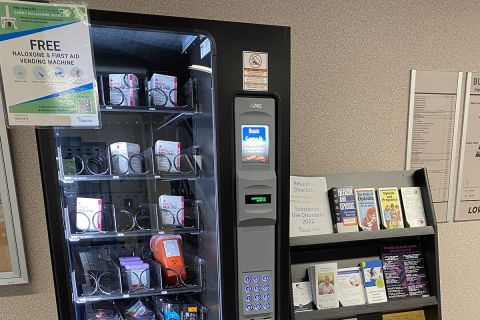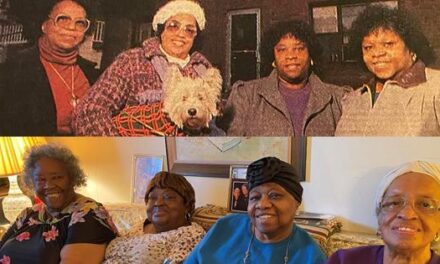
The vending machine is one of more than 30 containing naloxone located across the state.
Related:
“We are committed to doing everything we can to prevent overdose fatalities,” said Dr. Nike Shoyinka, medical health officer for Ingham County in a news release.
“The installation of this naloxone and first-aid vending machine is one way we are making it easier for people to access the life-saving tools they need.”
Opioids such as oxycodone (OxyContin), hydrocodone (Vicodin), morphine, and codeine and synthetic fentanyl account for nearly 47,000 deaths each year nationwide.
In Michigan, overall drug overdose deaths fell 4 percent last year to 2,993. That’s more than double the number of people who died in car crashes in Michigan last year, 1,123.
Nationwide, some 80 percent of overdoses involve opioids, and life-saving actions were present in 60 percent of drug overdose cases, according to the U.S. Centers for Disease Control and Prevention.
“If we are able to increase access to naloxone and have people be equipped to administer naloxone in the event of an overdose, the better we’ll be in reducing … the effect the opioid epidemic has in Michigan as well as nationally,” said Gina Dahlem, U-M clinical associate professor of nursing who works with Opioid Prescribing Engagement Network statewide initiative.
The Ingham County effort follows work by Wayne State University to place naloxone kits in county jails across the state.
Critics have argued that expanding access to the kits may enable users to continue abusing opioids. Some also argue that naloxone itself is an addictive drug.
Advocates point to studies that found expanding access to naloxone does not encourage users to use more or riskier opioids.
“Naloxone availability does not increase people’s drug use,” Dahlem said. “Naloxone does not enable a person’s drug use. It only enables the person who’s overdosing to breathe.”



